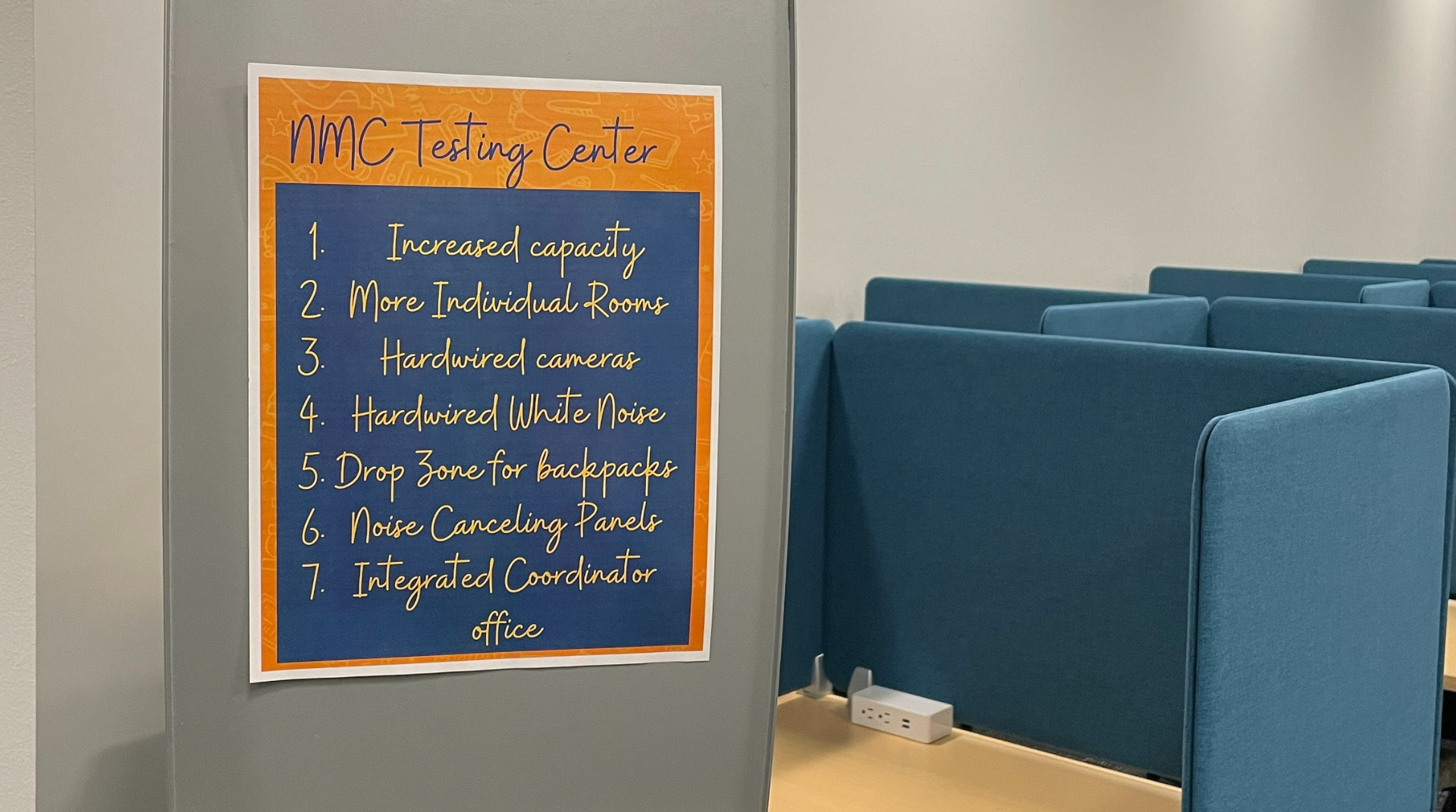 Transitioning to life as a college student is a big adjustment. Your college transition may feel more overwhelming when you need accommodations to make classes, studying and tests more accessible.
Transitioning to life as a college student is a big adjustment. Your college transition may feel more overwhelming when you need accommodations to make classes, studying and tests more accessible.
As you’re taking on more responsibilities, keeping up with rigorous coursework and establishing new social connections as a neurodivergent student, reaching out for academic support will help you succeed in college.
According to U.S. News and World Report, neurodiversity describes differences in brain function. People who are neurodiverse may have cognitive or learning disabilities, attention deficit hyperactivity disorder, autism spectrum disorder, Tourette syndrome or dyslexia.
At Nebraska Methodist College (NMC), the Office of Academic Success works one-on-one with students to provide accommodations.
“NMC is committed to working with all students,” said Lisa Flairty, director of academic success. “We work to meet the needs of students that require accommodations as best as we can in a timely manner.”
Academic Support For Neurodiverse Students at NMC
As a neurodivergent college student, you may be able to meet academic requirements but need additional support to be successful.
Colleges must comply with the Americans with Disabilities Act (ADA), providing equal opportunity and reasonable accommodations to qualifying students with disabilities. College support services provide access to accommodations.
It is the student’s responsibility to voluntarily disclose their needs and request accommodations.
The Office of Academic Success at NMC works to enhance a student’s academic performance by providing academic support and resources in the form of tutoring, supplemental instruction, ADA accommodations, academic coaching, skills workshops and individual attention.
Neurodiverse students can schedule a one-on-one appointment with Flairty to discuss services they may need.
“I work individually with students in an interactive process,” she said. “I ask questions to learn what will best serve the student.”
After the student and Flairty make a plan for accommodations, the student then communicates any necessary information to their professors.
“We try to make the process as seamless as possible,” Flairty said. “Whether a student has new or previous accommodations, we work to make the transition to NMC easier for the student.”
Students can reach out to Flairty throughout their college experience to make adjustments to the accommodations they’re receiving.
“Finding the right accommodations for a student is an ongoing process and changes can be made throughout their education,” Flairty said.
Student support services at NMC include:
- Developing a study schedule
- Time management
- Procrastination and motivation
- Note-taking
- Textbook reading
- Test preparation
- Test anxiety
- Test-taking strategies
Testing Accommodations for NMC Students
NMC’s accessible testing center provides students with a space for taking tests.
“Our testing center provides students with extended exam times and a reduced distraction environment,” Flairty said.
The testing center features individual testing spaces with noise-canceling panels at each testing station and white noise throughout the entire testing center to reduce distractions while testing.
Private testing rooms allow students to have fewer distractions, talk out loud, use software that reads aloud and stand or move around during tests.
When students use the testing center, they can pick up earplugs, fidget toys and mints to make their testing experience more supportive.
Flairty said the testing center is especially helpful for students who need ADHD accommodations so that they have extended time to demonstrate their knowledge in their courses.
The testing center also has security cameras to uphold academic integrity.
Technology That Makes Learning More Accessible
Access to technology can make the learning experience easier for neurodiverse students.
The NMClink: Technology Enriched Learning program provides students with learning tools that improve academic performance.
All on-campus students at NMC receive iPads for use during their college careers.
Mark Billington, director of the Center for Research, Education and Teaching Excellence (CREATE), works with students to help them to use learning tools and strategies.
Some of the technology students use includes:
- Notability
- Remote study groups
- Collective whiteboards
- Human Anatomy Atlas
- Picmonic
- Voice to text or text to voice
- Digital textbooks
- Time management apps
Free Mental Health Care for Students
NMC offers free, confidential counseling to all enrolled students.
“Counseling is a neutral, safe environment to dissect and shine a light on the issue you’re having,” said Sean Steele, an Education and Leadership in Healthcare Doctorate student and graduate assistant in the Counseling Department.
Mental health services help students make adjustments in their academic and personal lives. The licensed onsite counselor is trained to address a variety of issues, including:
- Test anxiety
- Relationships/codependency
- Stress management
- Time management
- Anxiety
- Coping strategies
- Substance abuse
- Depression
- Grief and loss
- Family/parenting issues
Students can also receive spiritually-focused counsel and encouragement or mentoring.
NMC has a licensed independent mental health practitioner, two master’s level counseling interns and a spiritual development coordinator.
On-campus counselors meet with students and/or their family members, including partners and children.
Students are encouraged to initiate contact with the counseling office, although referrals can be made by faculty, staff, parents or concerned friends.
Counseling services at NMC are voluntary and free. All information is kept in the strictest confidence in accordance with the law.
For mental health counseling services, contact Kathy Dworak, director of student counseling services, at (402) 354-7080 or schedule an appointment on her calendar.
For spiritual support, contact Kim Haizlip at kimberly.haizlip@methodistcollege.edu.
How to Receive Academic Support at NMC
Schedule an appointment with Lisa Flairty, director of academic success, at